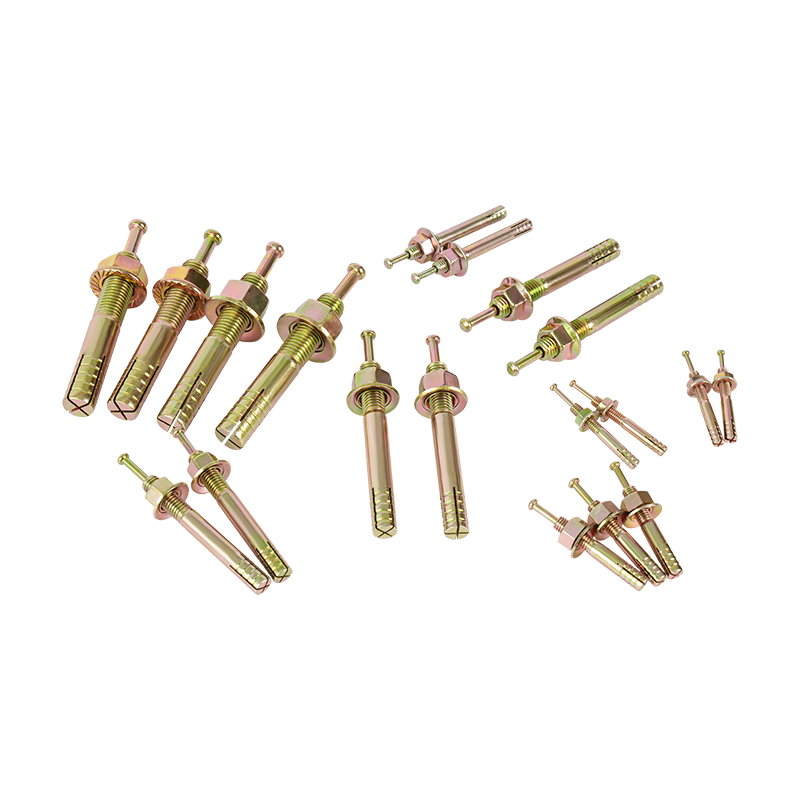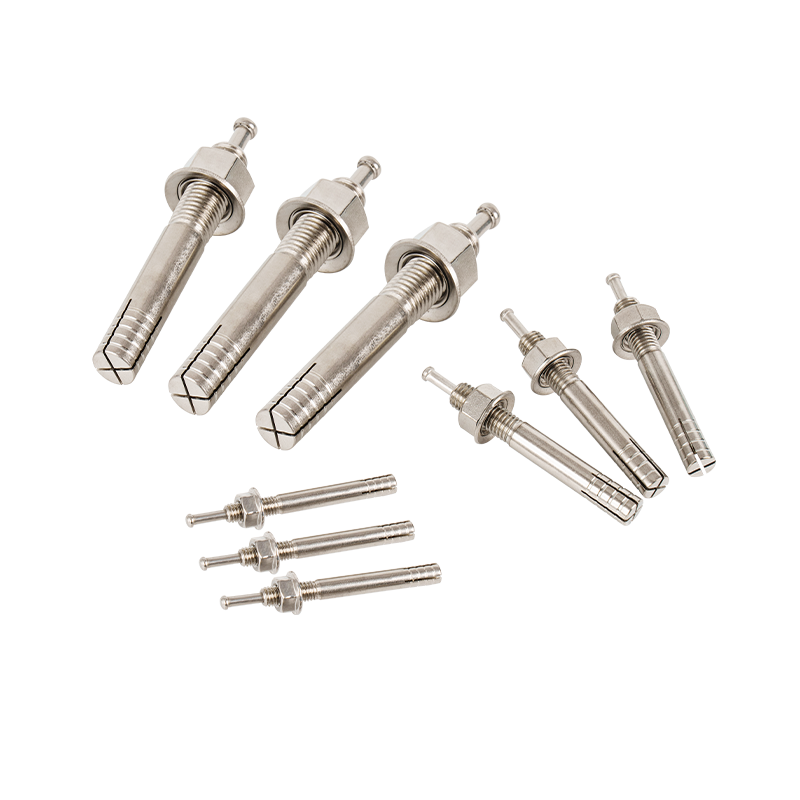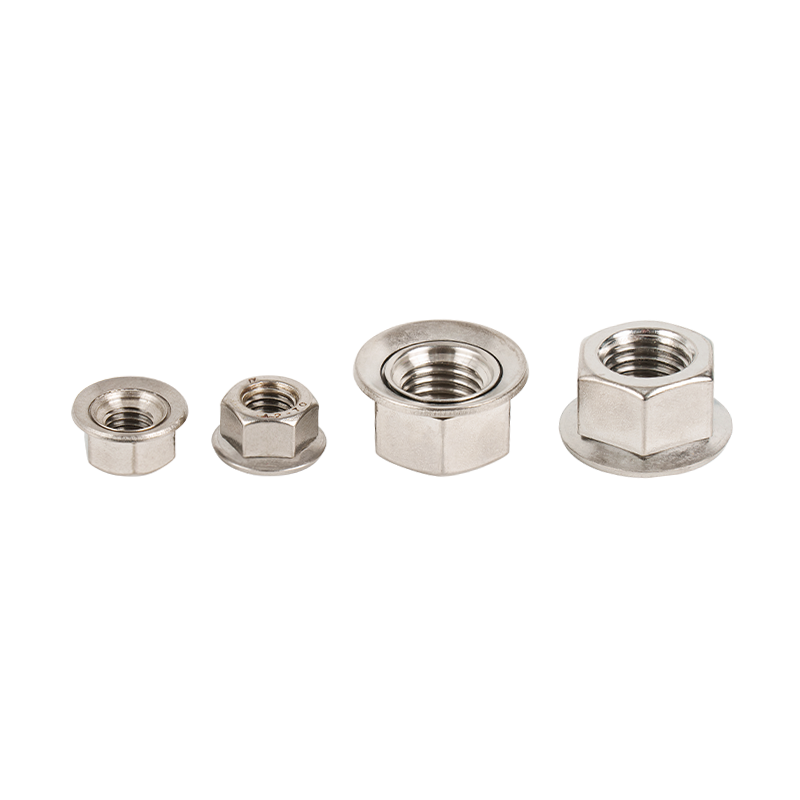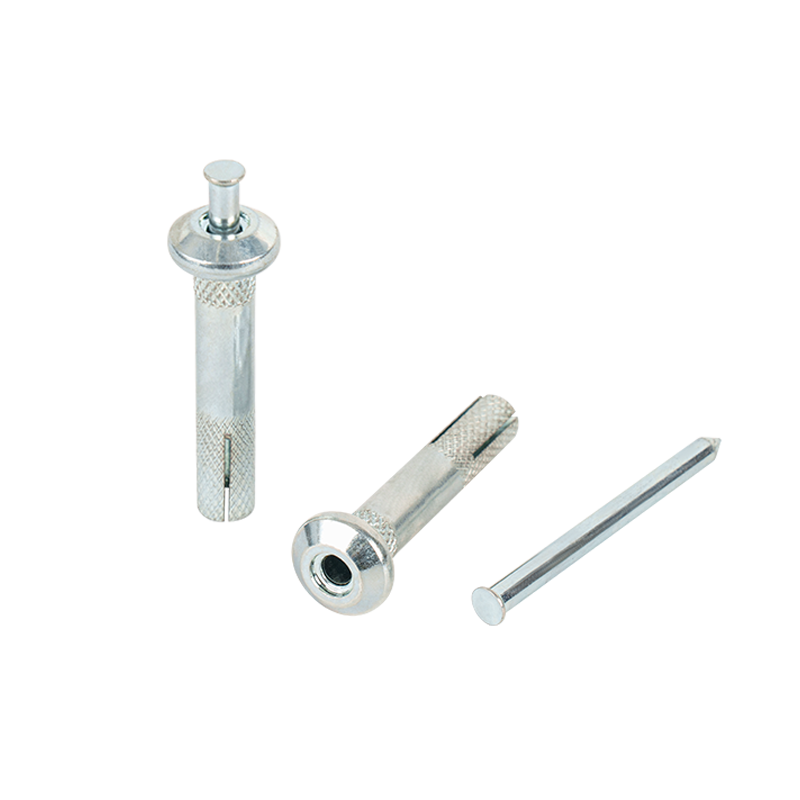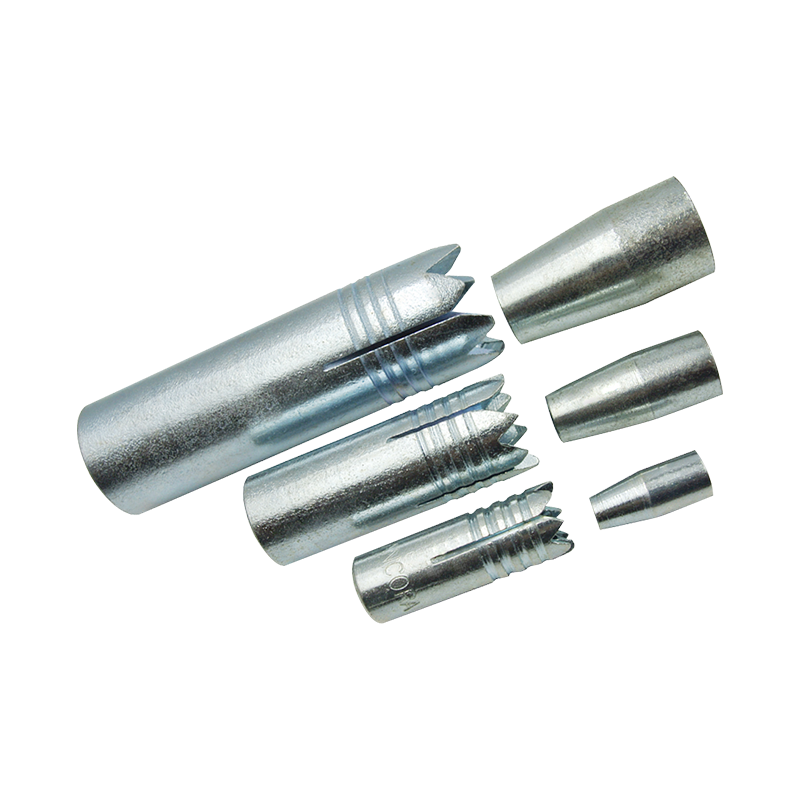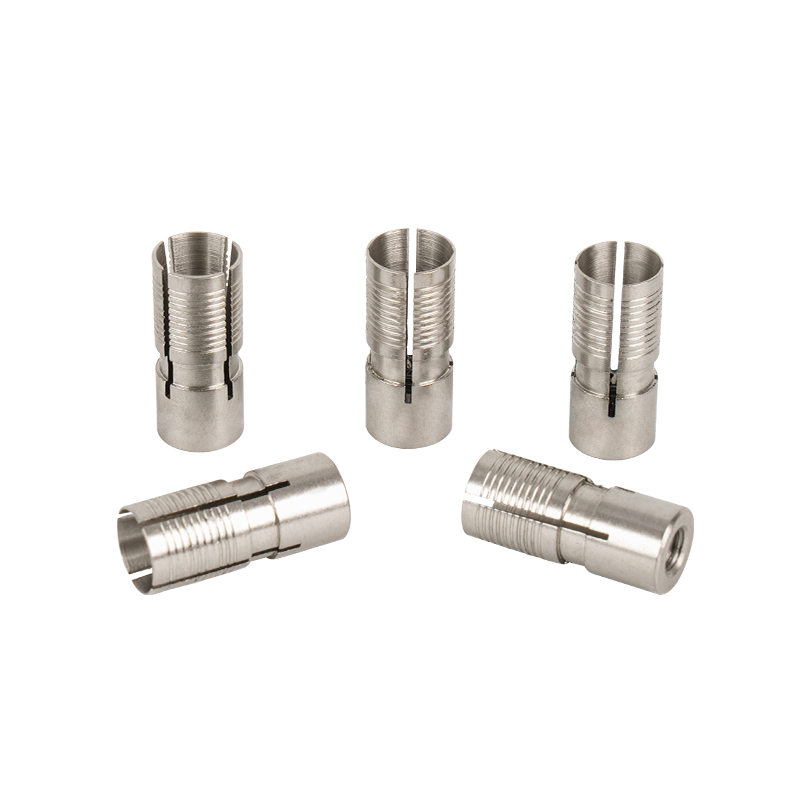Can the surface coating technology of Carbon Steel Strike Anchor effectively resist chemical corrosion?
2025-04-23
In the field of industry and construction, Carbon Steel Strike Anchor is a key load-bearing component, which is exposed to complex environments for a long time. Chemical corrosion is one of the main causes of its failure. In recent years, surface coating technology has been widely used to improve its corrosion resistance, but can this technology really effectively resist chemical corrosion?
1. Protection mechanism of coating technology: multi-level barrier and chemical passivation
The corrosion-resistant coating technology of carbon steel anchor bolts mainly includes two core mechanisms: physical barrier protection and chemical passivation protection:
Physical barrier layer: Through hot-dip galvanizing, epoxy resin spraying or fluorocarbon coating and other processes, a dense coating is formed on the surface of the substrate to isolate moisture, oxygen and corrosive media (such as Cl⁻, SO₄²⁻) from direct contact. For example, the porosity of the fluorocarbon coating is less than 0.5%, which can significantly reduce the permeability.
Chemical passivation effect: Zinc-based coatings (such as hot-dip galvanizing) delay substrate corrosion through the cathodic protection of sacrificial anodes; while chromate-containing epoxy coatings generate stable oxide films (such as Cr₂O₃) on the metal surface through passivation reactions, inhibiting electrochemical corrosion reactions.
2. Experimental verification: Quantitative data of coating performance
Laboratory accelerated corrosion tests show that surface coatings can significantly extend the life of carbon steel anchor bolts:
Salt spray test (ASTM B117): Uncoated carbon steel anchor bolts develop red rust within 72 hours, while samples with a double coating system of "epoxy zinc powder primer + polyurethane topcoat" have a salt spray resistance time of more than 2,000 hours, and the corrosion rate is reduced by more than 90%.
Acid and alkali immersion experiment: In a H₂SO₄ solution with a pH of 3, the corrosion weight loss rate of the fluorocarbon coated anchor bolt is only 1/15 of that of bare steel, and the coating does not blister or peel off.
Electrochemical impedance spectroscopy (EIS): The impedance modulus of the coating system can reach more than 10⁶ Ω·cm², indicating that it has excellent resistance to ion penetration.
3. Practical application cases: Performance verification in extreme environments
Offshore platform application: A marine project uses hot-dip galvanized + epoxy sealing coating carbon steel anchor bolts. After serving in a marine atmosphere containing salt spray and high humidity for 8 years, there is no visible corrosion on the substrate, and the coating adhesion remains above 95% (tested by the cross-cut method).
Chemical plant corrosion protection: A chemical plant reaction tower fixed anchor bolt uses polytetrafluoroethylene (PTFE) coating. Under the condition of contact with strong acid (concentration 30% HCl), there is no coating failure or substrate corrosion within 5 years, and the maintenance cost is reduced by 70%.
4. Technical optimization direction and suggestions
Although the existing coating technology has significantly improved the corrosion resistance of carbon steel anchor bolts, the following issues still need to be paid attention to:
Coating matching: Select the coating system according to the type of corrosive medium (such as PTFE is preferred in acidic environment, and epoxy resin is suitable for alkaline environment).
Construction process control: coating thickness, curing temperature and surface pretreatment (such as sandblasting to Sa2.5 level) directly affect the protective effect.
Life cycle cost: The initial investment of high-performance coatings (such as fluorocarbon) is high, but it can reduce the cost of later replacement and maintenance, and the comprehensive cost is more advantageous.
Based on the experimental data and actual engineering performance, the surface coating technology of carbon steel anchor bolts can effectively resist chemical corrosion, and its protective effect depends on the selection of coating materials, process control and environmental adaptability.

 English
English 日本語
日本語
